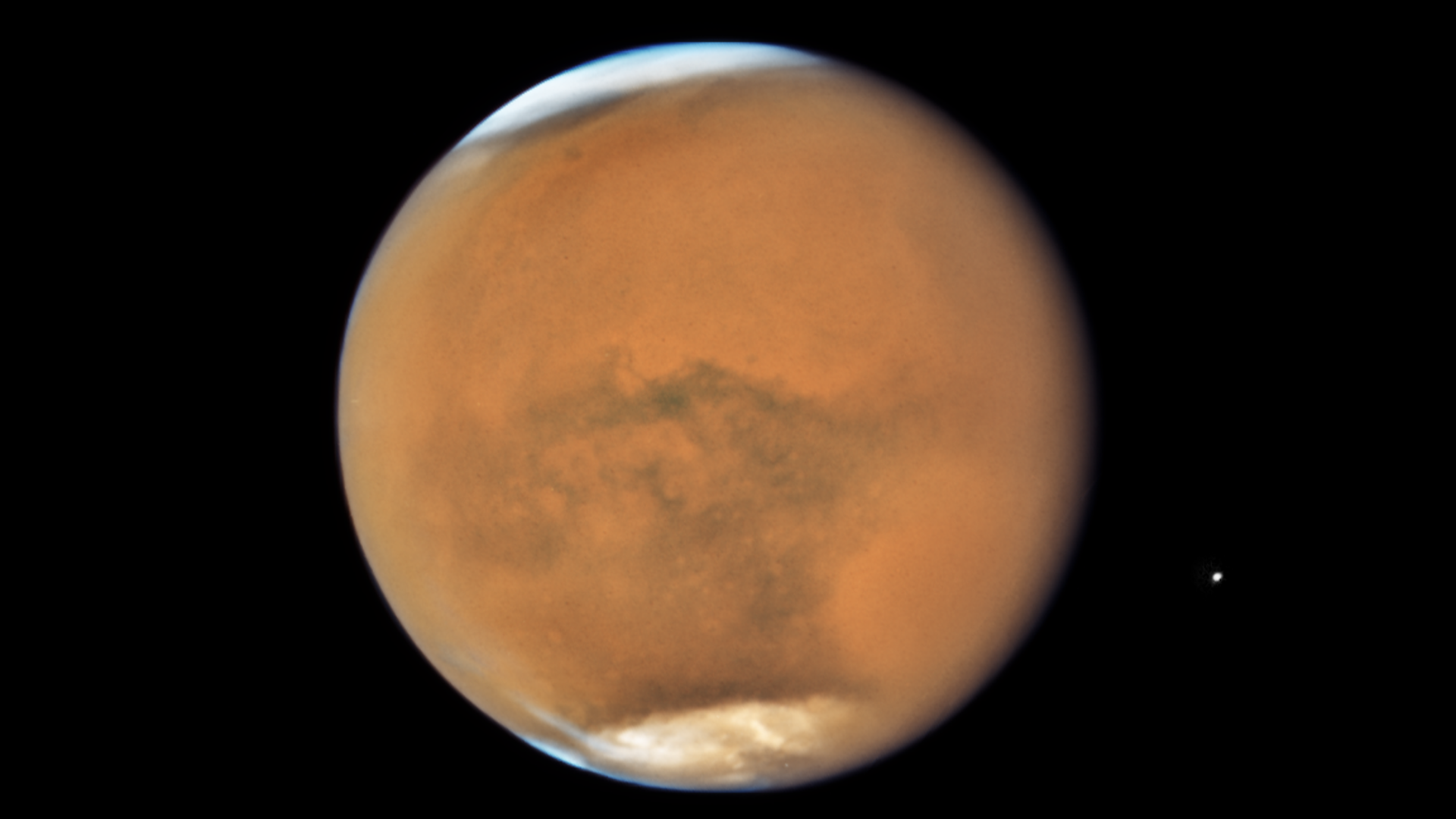'Mars' Fate Was Decided From Beginning': Study Reveals What Likely Happened to Red Planet’ Water
19:17 GMT 22.09.2021 (Updated: 10:10 GMT 30.11.2022)

© NASA . NASA, ESA, and STScI
Subscribe
Using potassium as "kind of tracer for more volatile elements and compounds, such as water," researchers have established that Mars "lost more potassium and other volatiles than Earth during its formation".
A new study published in the Proceedings of the National Academy of Sciences offers a possible explanation as to why Mars today has no liquid water, despite evidence suggesting that the Red Planet was at one time water-rich.
Researchers postulate that Mars' predicament is directly related to the planet’s size.
"Mars’ fate was decided from the beginning," Kun Wang, assistant professor of Earth and Planetary sciences at Washington University in St. Louis, and senior author of the study, said in a statement. "There is likely a threshold on the size requirements of rocky planets to retain enough water to enable habitability and plate tectonics, with mass exceeding that of Mars."
During their study, researchers measured the potassium isotope composition of several previously confirmed Martian meteorites, with the university’s publication, The Source, noting that the team sought to use potassium as "a kind of tracer for more volatile elements and compounds, such as water."
The team was able to determine that Mars "lost more potassium and other volatiles than Earth during its formation", establishing "a well-defined correlation between body size and potassium isotopic composition."
"The reason for far lower abundances of volatile elements and their compounds in differentiated planets than in primitive undifferentiated meteorites has been a longstanding question," said Katharina Lodders, research professor of Earth and Planetary Sciences at the university and co-author of the study. "The finding of the correlation of K isotopic compositions with planet gravity is a novel discovery with important quantitative implications for when and how the differentiated planets received and lost their volatiles."
As Wang explained, Martian meteorites are essentially "the only samples available to us to study the chemical makeup of the bulk Mars."
"It’s indisputable that there used to be liquid water on the surface of Mars, but how much water in total Mars once had is hard to quantify through remote sensing and rover studies alone," he said. "There are many models out there for the bulk water content of Mars. In some of them, early Mars was even wetter than the Earth. We don’t believe that was the case."


